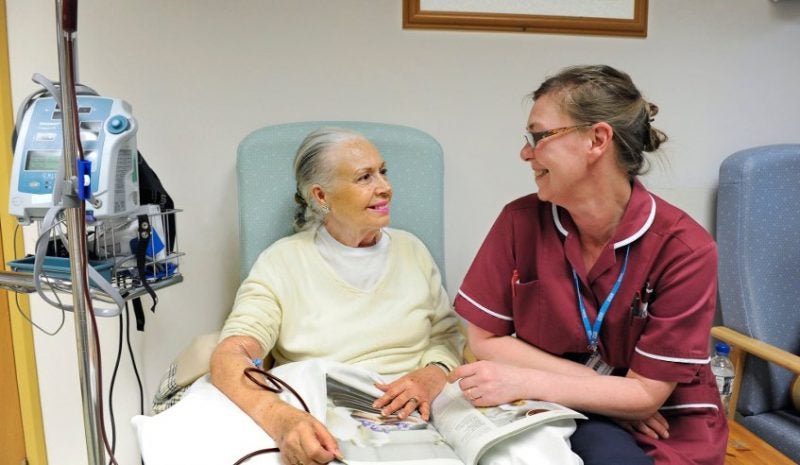
The Institute of Cancer Research (ICR), London, in the UK has reported that the number of individuals with cancer entering clinical trials has dropped during the Covid-19 pandemic.
Estimates show that the 60% reduction in recruitment to cancer trials was noted during the first year of the pandemic.

Discover B2B Marketing That Performs
Combine business intelligence and editorial excellence to reach engaged professionals across 36 leading media platforms.
In 2020-2021, the number of individuals with cancer enrolled into trials in England dropped to 27,734 from an average of 67,057 over the previous three years, the National Institute for Health Research (NIHR) figures showed.
These figures come amid warnings that the pandemic has intensified enduring problems with funding for trials, regulation and access.
A study conducted from April to July 2020 during the initial stages of the pandemic found that greater administrative burden in launching trials, specifically for novel trial designs such as biomarker-driven studies for precision therapeutic, led to reduced recruitment.
Other issues included the UK National Health Service not having mechanisms to perform quick genetic testing for patients to recruit them for precision therapy trials.

US Tariffs are shifting - will you react or anticipate?
Don’t let policy changes catch you off guard. Stay proactive with real-time data and expert analysis.
By GlobalDataFurthermore, funding for doctors to conduct clinical research differs and insufficient data on trials are available to patients and doctors.
The ICR further added that there is a disparity to access trials throughout the country, with some patients in rural regions reporting travelling more than 100 miles to receive a trial treatment.
ICR chief executive professor Kristian Helin said: “Clinical trials have huge benefits for patients, both by providing access to the latest drugs and technologies and by demonstrating the effectiveness of the next generation of treatments for use on the NHS.
“We would like to see a clinical trial being made available for every cancer patient who would like to participate in one.
“That requires both investment in Covid-19 clinical research recovery, to get us back to where we were before the pandemic, and broader measures to widen access to trials by reshaping funding, regulation, information and treatment pathways.”
This October, the ICR reported that a cocktail of immunotherapies could be effective as first-line therapy to treat relapsed or metastatic head and neck cancer patients.





